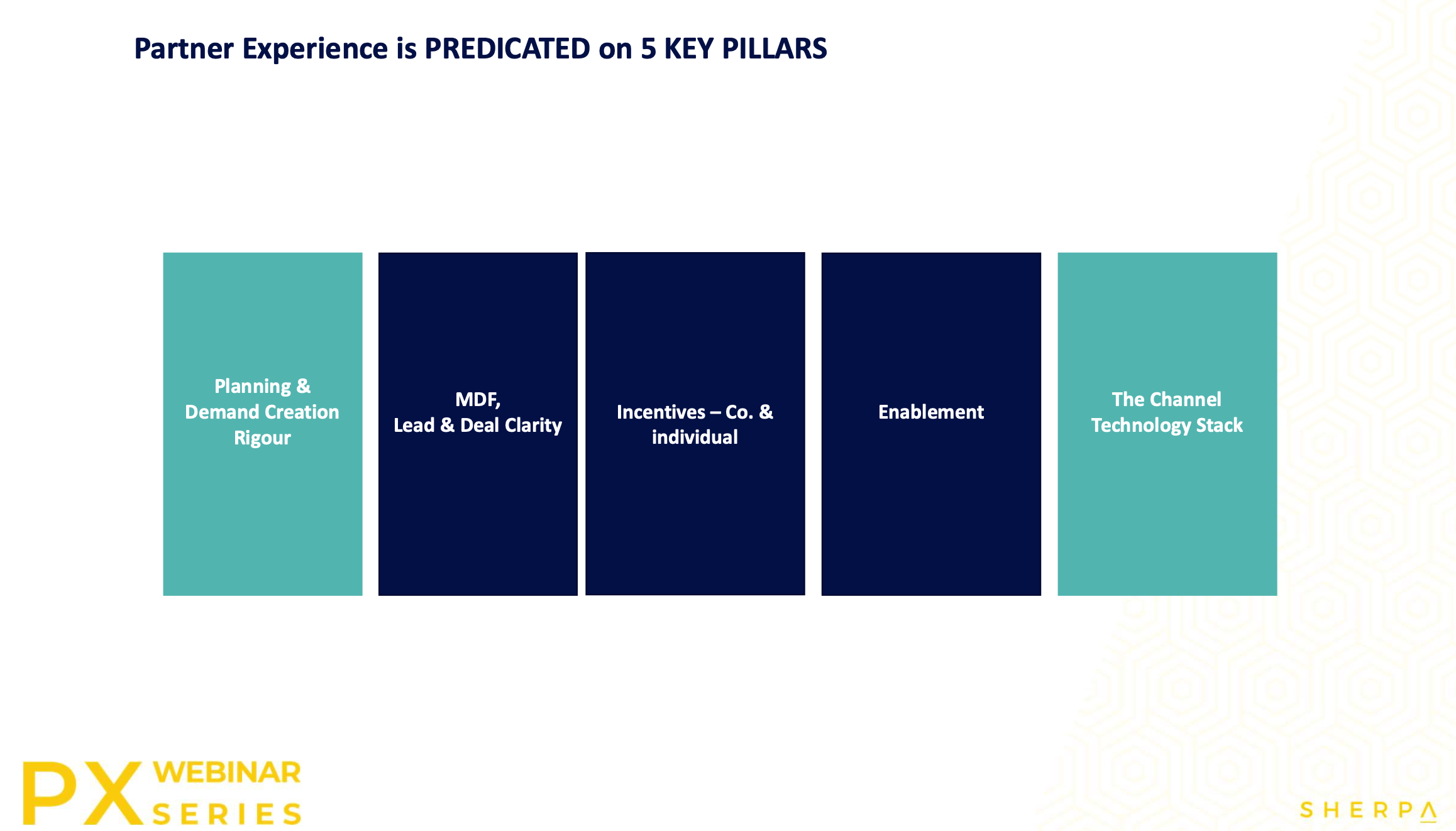On-demand webinar: The Partner Marketing Funnel: Introducing the 4 Why's
Partner marketing isn’t just about generating leads. It’s about moving opportunities through the funnel with clarity and purpose. Yet for many...
4 min read
 Annee Sian
May 11, 2021 9:05:49 AM
Annee Sian
May 11, 2021 9:05:49 AM

At the heart of any channel is its people. And where you have a workforce you have workplace culture, which is defined by the character and personality of your organisation. Encouraging a union between culture and Partner Experience (PX) is imperative to achieving your channel objectives.
2020 was a year like no other - the pandemic altered priorities in organisations and was responsible for driving huge organisational change. I took some time with our CEO Tom Perry and Non-Executive Director and Chair of Board Nikki Gatenby - with her highly successful 25 years of experience transforming digital agencies into tech powerhouses - to reflect upon workplace culture. We were also joined by Nikki’s parrot Scully, who lent some squawks of encouragement throughout the interview!
Nikki: Culture - the character and personality of your workforce - is imperative to achieving your channel objectives. The basic formula for channel success begins with attracting agile, forward-thinking Partners who have the right expertise and capabilities, and using your relationship to drive engagement with these Partners and offer a positive Partner experience (PX). If executed well this people-led transformation will not only lead to Partner retention but will also drive profit and ROI for your channel.
As B2B channel marketing specialists, at Sherpa we have found that the heartbeat of any channel are the organisations and people who operate within it. The Vendors who are embracing a positive channel culture and are actively investing in delivering positive PX are coming out on top.
---Keep Scrolling to Continue Reading---
Nikki: The nature of channel is dynamic and fast-evolving - this has been particularly true in 2020, which was a year like no other! The pandemic caused a major shift in business and operational priorities across the globe, and was responsible for driving huge organisational change within the channel.
Prior to the global pandemic, research measured global levels of employee engagement - only 30% globally were engaged in their jobs. The potential for this disengaged 70% is huge. Just imagine what could be achieved for your organisation if this significant collective intelligence and wider skill set blossomed, instead of wilting.
Tom: For Vendors and Partners the next steps are clear; organisations should do so much more in 2021 to motivate and engage more of the 70%. COVID-19 has made us question everything, and now more than ever the channel should embody something that people want to come back to, engage with and use as a vehicle for growth. If we don’t stand for something - we stand for nothing.
Tom: This is a great question, because the number one objective for 2021 is marrying the culture of individual Vendors and Partners to achieve symbiotic partner-vendor relationships. The key criteria for a successful channel programme has evolved a lot - the last 20 years have all been geared towards sales and revenue - but there is now so much more to channel success than profit.
The driving factor behind this is the realignment of the tech industry, which has evolved into the form of subscription-based models of software as a service (SaaS). With end-users able to switch on and off these various services to suit demand, Vendors need to take the time to fulfil the needs of their customers in the service they provide and do more to enable their channel Partners.
👉 Related [Channel Insights] What is Channel Partner Experience?
Tom: As a specialist channel agency, we are asked this question a lot! Our honest answer would be no. The Channel is wonderfully diverse, and if you are working with Partners who operate in different geographic territories or across industries that aren’t necessarily within your sweet spot, that channel diversity should be celebrated, not restricted.
When recruiting new Partners, you should search for a handful of shared values within your pool of prospects, such as a passion for growth and collaborative working methods. If your checklist of values is too extensive, you risk missing out on potentially transformational opportunities.
The traditional channel model once gave Vendors the luxury of searching for an entirely like-minded partner, however it has since evolved beyond this. As we’ve established, due to tech being largely subscription-based, there is a dependency on strong renewal engagement skills, customer education and regular communication to guide the overall process. This is something that big companies such as Salesforce and Microsoft 365 have nailed.
Nikki: These are skills you will need to support your channel Partners in developing, as whilst each partner has their own unique strengths and capabilities, no one partner will initially bring the whole package. The joint value in your relationship with each individual partner will also highlight where and how you can work together to embrace a synergic culture and drive growth for your mutual customers.
Tom: There is no doubt that the year we've been through has seen large tech companies examine how they go to market. Although the past year has been tough for many organisations, a silver lining of this break to the pre-COVID ‘business as usual’ approach is the perfect opportunity for inward reflection.
What we have observed in the newer channel model is that power has shifted, and it’s the Partners who are driving business. They are at the forefront of SaaS transactions and have a deep understanding of customers' needs, so they have to be present at the centre of every channel strategy rather than a secondary consideration.
Pause for a moment and think about your channel. Then ask yourself “is my channel fit for purpose”?; and “are my Partners happy”? When evaluating this, look to measures such as the longevity of Partnerships, customer retention, shared values and culture, and the potential opportunities around the joint value you maintain with your Partners.
Nikki: Now is the time for your organisation to utilise the channel as a location for collaboration, with the end goal of making your channel infrastructure stronger and helping your Partner network hit the ground running as we move on from the pandemic. Culture and channel partner experience should be at the forefront of this shift. We are all human, and you will get the best out of your workforce and Partners when you take this into account.
These past few months have been a year of rapid evolution for channel. We are currently in a transition phase, the model is shifting to fulfil the needs of customers and Partners. Slap bang in the middle of this success is culture and people, the tech companies who have taken this into account are flying, whilst those relying on the old model risk significantly being left behind.
---------------------------------------------------------------
For more information or to discuss how Sherpa can help you, please get in touch:
.jpeg)
Partner marketing isn’t just about generating leads. It’s about moving opportunities through the funnel with clarity and purpose. Yet for many...
%20(19).png)
Partner marketing is entering a new era.

Partner marketing isn’t just evolving, it’s accelerating. With buying committees now stretching to 20+ decision-makers, AI reshaping how we work, and...

Partners bring scale, vertical expertise, customer management skills and renewal process to technology vendors - it goes without saying that the...
.png)
Welcome back to Sherpa’s PX Webinar series, where our channel specialists are joined by leading tech experts to share their insights into channel...

2021 has been the year that Partner Experience (PX) has lept to the forefront of channel strategy and operations. We have been speaking with global...